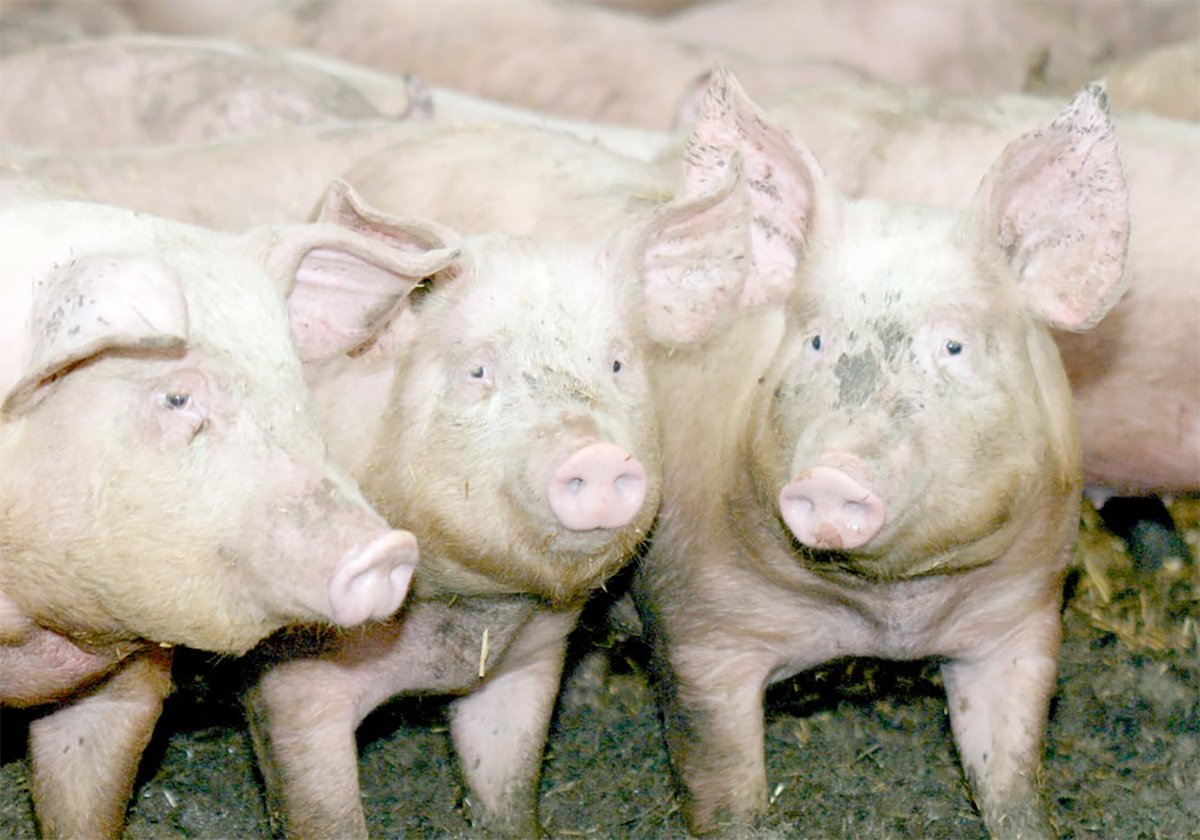With only four employees in its Calgary office, Scoular Canada is trading more than one million bushels of grain per month without elevators or Canadian Wheat Board connections.
The company came to Calgary a year ago and focuses on Western Canada’s active feed grain trade. It started dealing in barley, feed wheat, oats and canola last summer.
“We trade one million bushels a month and still don’t know everybody,” said Calgary manager Rob McNaughton.
When the 105-year-old U.S. company headquartered in Omaha, Nebraska, decided to move north, it looked at facilities and the associated costs. That led to the decision not to build or buy elevators because the expense was too great. The company also maintains there is enough on-farm storage available and believes overbuilding of concrete terminals is a looming problem on the Prairies.
Read Also

The Western Producer Livestock Report – November 13, 2025
Western Producer Livestock Report for November 13, 2025. See U.S. & Canadian hog prices, Canadian bison & lamb market data and sales insights.
Further, Western Canada livestock numbers are expanding rapidly. This is driving up the domestic price for feed barley higher than the export price offered through the board.
With ready customers waiting to be linked to growers, there’s no need for elevator charges or additional handling of the grain, said McNaughton.
Scoular is banking that feed grain consumption will increase in Western Canada and, as freight rates rise in 1999, more farmers will decide to put the barley through livestock.
“Domestic consumption will take a huge chunk and exports will decrease because there’s more value added at home,” said McNaughton.
“As we close rail lines and close elevators the farmer is not going to be able to haul to his elevator because it isn’t there any more. He will focus on what is the price of grain at his bin,” he said.
Scoular moves grain all over the West by Super B trucks. Half the size of a rail car, they can efficiently and cheaply haul grain over long distances from Manitoba to southern Alberta feedlots.
“Even without backhauls it still works,” he said.
Dealing with a company like Scoular is a new experience for farmers if they have never sold f.o.b. from the farm. However, the customer list is growing.
Scoular arranges for grain to be picked up from farms and delivered direct to the customers such as feedlots and hog operations. It also makes sure all bills are settled.
There’s no elevator charges or additional handling of the grain.
Scoular Grain is a diverse grain trader started by Scottish immigrant George Scoular. It has grown into a $2 billion-a-year operation.
Fifteen years ago the company was the fourth largest warehouse owner in North America, with the ability to hold 110 million bushels. Because of the cost of these grain handling facilities, the company decided to get rid of many of them.
Today, it is down to 20 high throughput facilities in the U.S. Midwest. Last year the company traded 400 million bushels of grain. Corn is the mainstay of its business, but it handles 50 other commodities including oilseeds, other grains and cotton seed.
Scoular sells and distributes oats for Cheerios, wheat for Gold Medal Flour and corn for the fructose sweetener in Coca Cola. It is 67 on the Forbes list of 500 largest private companies.
The company has international interests and actively trades in Canada from Calgary and works for Mexico out of a Kansas City, Missouri office. About 18 percent of the company’s business is with Mexico.
“With modern technology we didn’t need an office in Mexico,” said McNaughton.















